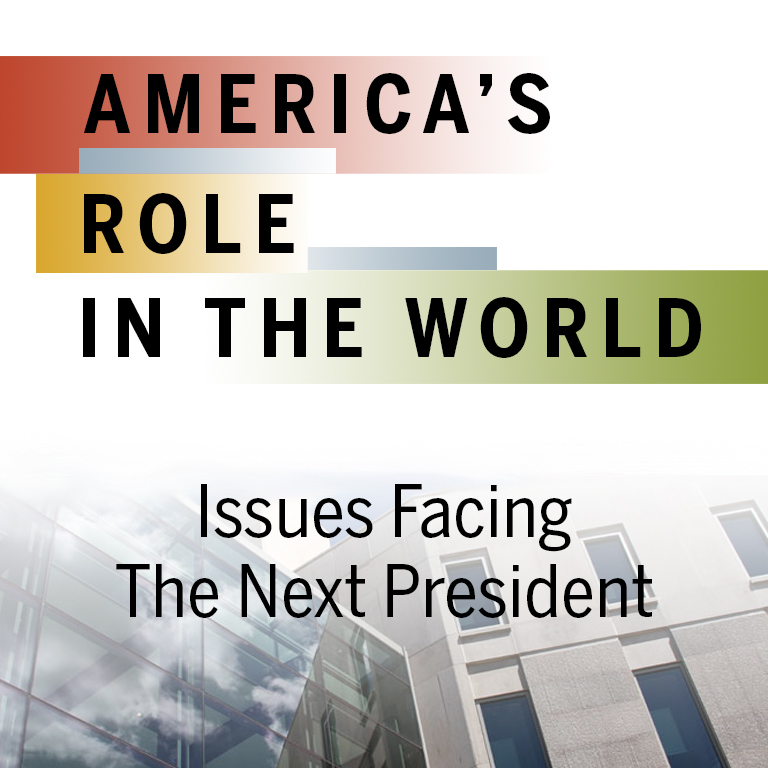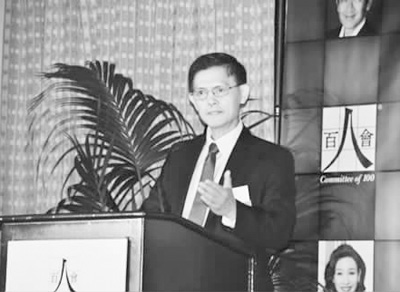
The World Watches as US Foreign Policy Enters Period of Restructuring
Following a visit in March to break the ice in the feud with Cuba, Obama watched a baseball game in Havana followed by a visit to Argentina — now in the midst of anti-American sentiment — where he enjoyed dancing a tango. President Obama will continue his last diplomatic trip by visiting England, Germany and the Middle East at the end of the month. In addition, next month he will leave for Vietnam during a sensitive time in the dispute over the territorial sovereignty of the South China Sea.
Facing merely nine months left in office, and with the presidential primaries busily underway, not only has the Obama administration’s foreign policy become a focal point of debate in U.S. domestic politics with every major candidate making criticism of Obama the main objective, but also the international community, including Taiwan, is now worried about whether the next president-elect will completely diverge from Obama in mindset and methodology.
Indeed, not long after Brussels suffered a terrorist attack, despite the fact that Obama called an emergency response meeting while visiting Cuba and Argentina, the media’s impression was that Obama was actually enjoying a baseball game between the U.S. and Cuba as well as dancing to tango music. Most diplomatic critics have also given Obama’s foreign policy track record mixed reviews, simultaneously offering praise and criticism.
Objectively, Obama’s accomplishments cannot be denied when it comes to promoting improved relations with Cuba and Iran, his work on the international agreement to reduce global carbon emissions and climate change, cutting down on the proliferation of nuclear weapons, the Trans-Pacific Partnership agreement, and the “Rebalance to Asia” strategy. However, critics believe Obama has excessively cut back on his predecessor George W. Bush’s “diplomatic unilateralism,” leading to a failed U.S. policy in the Middle East, indirectly leading to the rise of the Islamic State. On this point, even Obama admits that the U.S. handling of the regime change following the downfall of Libya’s Gadhafi regime was a failure.
More importantly, Obama has no intention of repeating a disastrous policy of getting the U.S. deeply mired in a military quagmire in the Middle East. Thus, he has merely relied on a strategy of allied air raids paired with training Iraqi military forces and Syrian rebels. However, the U.S. has not yet been able to put an end to the Islamic State group, and has even allowed Russia to forcefully enter Syria following the events in Ukraine. And so, members of terrorist groups have fled to the main cities of Europe to carry out more attacks, with the wave of Syrian refugees becoming a responsibility the European Union is unable to handle, and the U.S. appearing seemingly aloof and staying out of the whole affair. For example, Republican Party candidates Donald Trump and Ted Cruz, among others, have even suggested the U.S. should discriminate against immigrants and followers of Islam and have advocated the need to keep them from entering the United States. Xenophobic populism has started to be in vogue among the extreme political right in the U.S. and Europe. Furthermore, although the Obama administration has been cautiously handling a rising China, it is nevertheless continuously grappling with the South China Sea disputes, leading to a rise in tension.
Having held office during both the Bush and Obama administrations, former Secretary of Defense Robert Gates publicly announced the other day that the Obama administration's diplomatic track record wasn’t too bad but that the main problem lies in the lack of a long-term macrostrategy. This has led to the National Security Council’s micromanagement, leaning toward adding to its track record in order to show political achievement. This has resulted in leaving the Middle East, the Islamic State group, China, North Korea, etc. behind as an unwieldy mess for Obama’s successor. This has also caused the United States’ prestige as a world leader to suffer.
Gates stated he had two main worries. One is Obama’s “strategic ambiguity” on sensitive diplomatic issues resulting in worry among U.S. allies. For example, exactly what kind of stable regime does the U.S. hope to establish in Iraq and Syria? Using what coherent strategy and why? Another example is the United States’ construction of checks and balances in the Asia-Pacific region against China. However, if Xi Jinping is restrained by domestic challenges and continues to demonstrate dictatorial moves in foreign policy, what ultimately is the United States’ effective plan? Not to mention the question of whether the United States’ Korean Peninsula strategy will be interpreted by North Korea as merely a bluff. As for the EU, if it is unable to reach a consistent course of action under its counterterrorism strategy, then could it be that the U.S., aside from intelligence sharing, will only be able to handle its own affairs or is this still all just talk?
Gates’ other worry is that the next U.S. president may overcompensate when it comes to foreign policy. This is precisely what is of deep concern to the international community, including Taiwan. If the Republican Party wins back the White House, regardless of whether it is Trump or Cruz, the party’s off-putting disclosures on the campaign trail regarding foreign policy views on trade, security and counterterrorism are enough to make one tremble with fear. If the Democrat Party’s Hillary Clinton is elected, she is expected to be even stronger on foreign policy. However, facing complex international circumstances, the U.S. has again forcefully intervened in regional disputes. Whether or not this is only to make up for previous shortcomings and take a more aggressive stance requires a more comprehensive review.
More importantly, after the campaigning and the emotional debates over foreign policy, the newly appointed president and the new administration’s national security staff will face sizable domestic restrictions, having to draw the right balance between domestic and foreign policy as the president is tested on his or her strategic ability and the quality of his or her policy.
Taiwan is actually facing an extremely complicated and challenging external environment. There are many issues that will test the deployment and operation of the new government’s macrostrategy. These include the yet-to-be-determined response from Beijing concerning bilateral relations, the South China Sea, the situation with the Korean Peninsula, follow-up developments with the TPP, how the new U.S. government and other Asia-Pacific nations will get along, the changing internal political circumstances in Japan, South Korea, the Philippines, Myanmar, etc., how Taiwanese foreign policy will transform the disadvantage of the Ma administration’s excessive closeness with China to readjusting its relationships with other countries, and a good deal of emerging international issues and investments.


